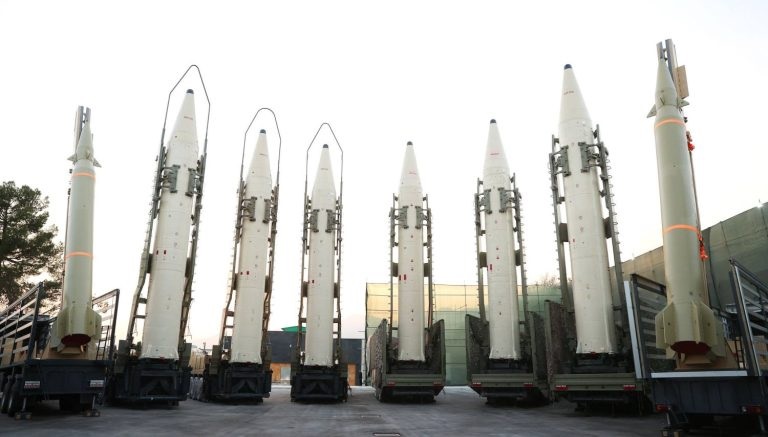Tensions Surge in the Middle East: Gulf States Warn U.S. Against Iran Strikes

Watan-Gulf countries have warned Washington against using American bases on their territories to launch attacks against Iran, as revealed by the Middle East Eye website.
This comes amidst cautious anticipation in the Middle East for Iran’s response to an attack by Israel targeting one of its consulate buildings in Damascus.
A senior American official, speaking on condition of anonymity, told the British outlet that Gulf states urged the United States not to use its military bases on their soil to carry out strikes in retaliation to any potential Iranian attack on Israel.
Meanwhile, Israeli media reported that an American missile ship with advanced defensive capabilities anchored off the “Israeli shores” on Friday.
Israel’s Channel 14, citing an unnamed source, reported, “Israel is preparing for a direct attack from Iran, either north or south of the country, within the next 24 to 48 hours.”
Earlier on Friday, US Defense Secretary Lloyd Austin reassured his Israeli counterpart, Yoav Galant, in a phone call that Tel Aviv could rely on full support from Washington in confronting threats from Iran and its proxies in the event of retaliatory actions.
The term “Iran’s proxies” refers to armed organizations backed by Tehran in several Middle Eastern countries, notably the Houthi group in Yemen, which targets Israeli or Israeli-affiliated ships in the Red Sea, and Hezbollah in Lebanon, which targets northern Israeli territories since October 8, 2023.

The United States has previously expressed concerns about Iran launching an imminent missile strike on Israel in response to the killing of a senior Revolutionary Guards commander in an Israeli airstrike on the Iranian consulate in Damascus.
Since the attack on Damascus on April 1st, there have been analyses in Israeli media suggesting that Tel Aviv is preparing for an Iranian retaliation for the assassination of General Mohammad Reza Zahedi in an airstrike Tehran claimed was an Israeli bombardment targeting the consulate section of its embassy in Damascus.
There have been discussions about Israelis preparing for a “retaliatory response” from Iran, although Israel has not officially acknowledged the assassination of Zahedi, nor has it denied responsibility for the assassination.
On Thursday, Iranian Foreign Minister Hossein Amir Abdollahian, in a call with his British counterpart David Cameron, affirmed that his country “does not seek to escalate tensions in the region, but Israel’s attack on the Iranian embassy and the silence of America and Britain means encouragement for (Israeli Prime Minister Benjamin) Netanyahu to continue igniting and expanding the war in the region.”
Cameron, in the same call, expressed concern about the continued tension in the Red Sea and urged Iran to exercise restraint.
He said, “Lack of restraint on the part of the parties could lead to further escalation of conflicts in the region,” according to a statement from the Iranian Foreign Ministry quoted by local media.





